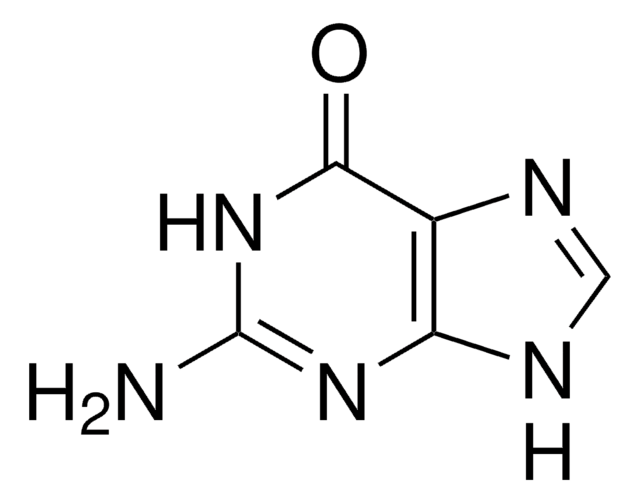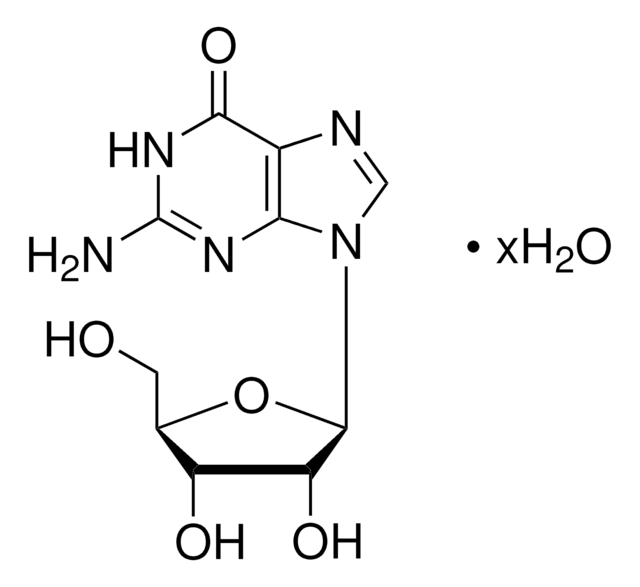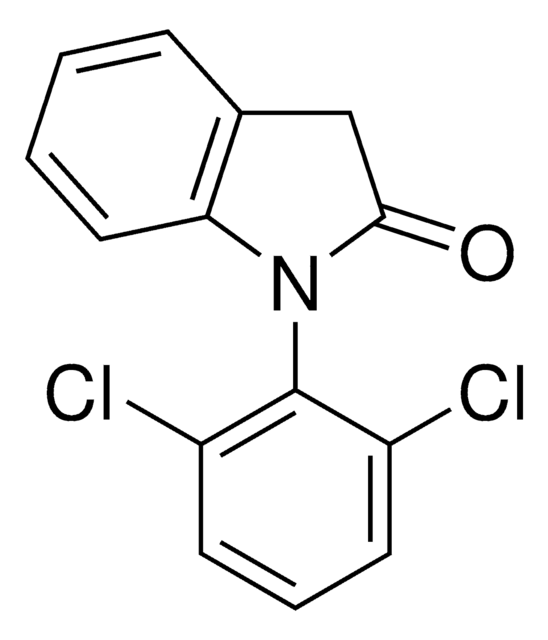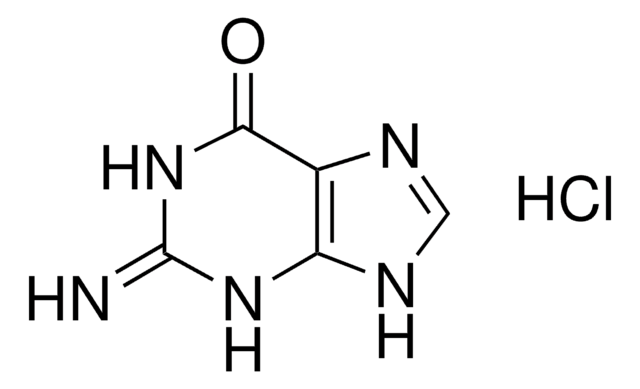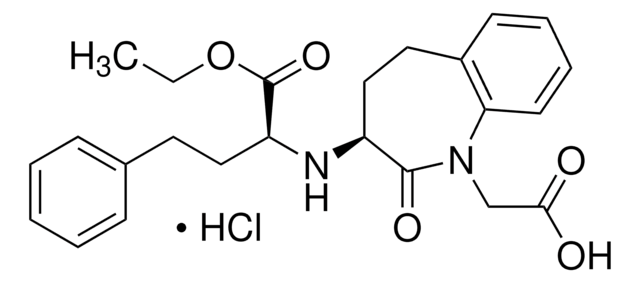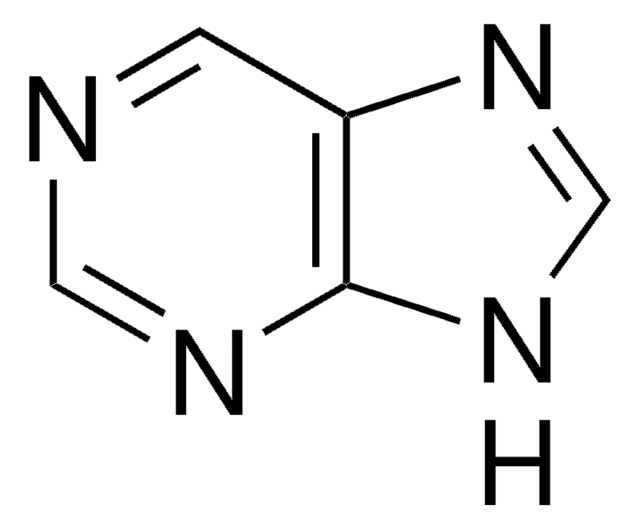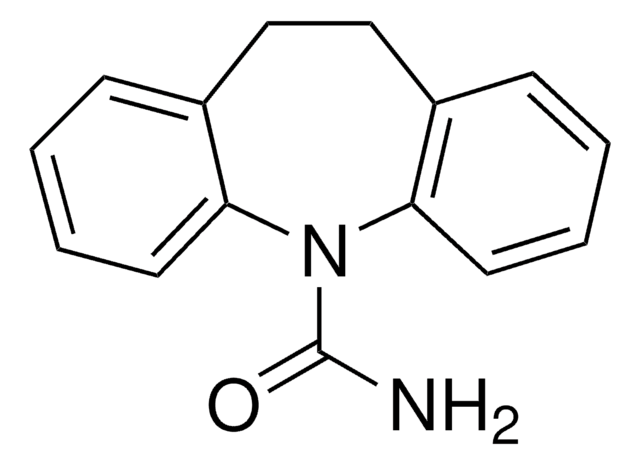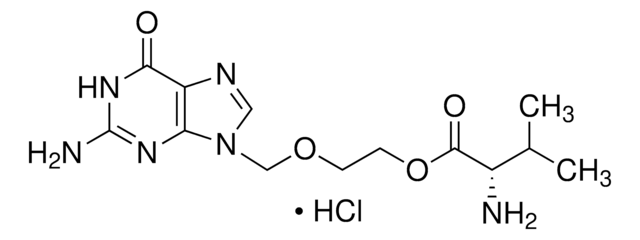PHR1243
Guanine
Pharmaceutical Secondary Standard; Certified Reference Material
Synonym(s):
2-Amino-1,7-dihydro-6H-purin-6-one, 2-Amino-6-hydroxypurine, 2-Aminohypoxanthine
About This Item
Recommended Products
grade
certified reference material
pharmaceutical secondary standard
Quality Level
Agency
traceable to BP 879
traceable to USP 1302156
API family
ganciclovir, valacyclovir, aciclovir
CofA
current certificate can be downloaded
technique(s)
HPLC: suitable
gas chromatography (GC): suitable
mp
>300 °C (lit.)
application(s)
pharmaceutical (small molecule)
format
neat
storage temp.
2-8°C
SMILES string
NC1=Nc2[nH]cnc2C(=O)N1
InChI
1S/C5H5N5O/c6-5-9-3-2(4(11)10-5)7-1-8-3/h1H,(H4,6,7,8,9,10,11)
InChI key
UYTPUPDQBNUYGX-UHFFFAOYSA-N
Looking for similar products? Visit Product Comparison Guide
General description
Guanine is one of the building blocks of both RNA and DNA that plays a significant role in protein biosynthesis as well as the storage of genetic information.
Application
Analysis Note
Other Notes
Footnote
related product
Signal Word
Warning
Hazard Statements
Precautionary Statements
Hazard Classifications
Eye Irrit. 2 - Skin Irrit. 2 - STOT SE 3
Target Organs
Respiratory system
Storage Class Code
11 - Combustible Solids
WGK
WGK 3
Flash Point(F)
Not applicable
Flash Point(C)
Not applicable
Choose from one of the most recent versions:
Certificates of Analysis (COA)
Sorry, we don't have COAs for this product available online at this time.
If you need assistance, please contact Customer Support.
Already Own This Product?
Find documentation for the products that you have recently purchased in the Document Library.
Customers Also Viewed
Our team of scientists has experience in all areas of research including Life Science, Material Science, Chemical Synthesis, Chromatography, Analytical and many others.
Contact Technical Service